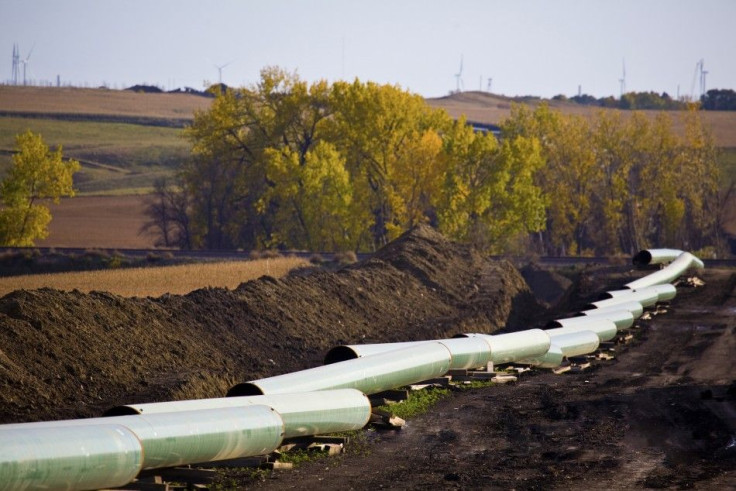Keystone XL Pipeline: Will It Hurt or Help U.S. Energy Independence, Lower Gas Prices?

TransCanada recently announced its plan to construct the southernmost portion of the Keystone XL oil pipeline, following the project's rejection by u.S. President Barack Obama earlier in January.
The initial proposal involved construction of an oil pipeline from Alberta, Canada through several Midwestern U.S. states to the Gulf of Mexico, which required presidential approval through the State Department.
TransCanada has now split the project into two separate ones, and seeks to move forward first with a pipeline from Cushing, Okla. to the Gulf Coast, which it said could be operational by mid to late 2013. The project does not require DOS approval, given that it remains within U.S. borders.
TransCanada spokesman Terry Cunha said in a telephone interview Wednesday that the Gulf Coast Project has already secured all necessary state and federal permits, and is only pending approval by the U.S. Army Corps of Engineers.
The Canadian company also announced that it will reapply for a Presidential Permit through the DOS for the northern section of the pipeline.
The Debate Over Energy Independence and Fuel Prices
TransCanada said on its website the $2.3 billion Gulf Coast Project will relieve a bottleneck of crude oil produced in the Midwest, allowing it to flow down to under-utilized refineries along the Gulf Coast.
Gulf Coast refineries can then access lower cost domestic production and avoid paying a premium to foreign oil producers, said TransCanada CEO Russ Girling in a Feb. 27 statement. This would reduce the United States' dependence on foreign crude and allow Americans to use more of the crude oil produced in their own country.
Critics of the project are skeptical of TransCanada's claims, saying the majority of oil transported by the pipeline will be refined for exports, maximizing profits for the oil industry, and not used for domestic consumption.
Keystone XL backers are simply using the pipeline as part of a larger strategy to re-direct oil from the American Midwest to international buyers who are willing to pay a higher price for it, wrote the National Resources Defense Council (NRDC), an environmental action non-profit, in a January 2012 report.
Charles K. Ebinger, Director of the Energy Security Initiative at public policy think tank, the Brookings Institution, said in a phone interview Wednesday that both supporters and detractors (of Keystone XL) don't seem to understand oil as part of the international market, and that neither argument is fully representative of market realities.
Ebinger said that the Keystone XL pipeline would reduce oil imports from more volatile regions of the world and could lower fuel prices through increased domestic refinement, adding, such results are subject to fluctuations in global oil prices and U.S. exports of refined petroleum products like gasoline.
In the past year, the oil industry has tripled the amount of gasoline exports, arguing weak domestic demand can't sustain current levels of production, reported the Christian Science Monitor.
With fuel prices rising and expected to top $4 a gallon by summer, increasing gasoline exports could become a major public relations liability for the oil industry, said Ebinger, who believes the industry should scale back exports to bring fuel prices down and avoid negative publicity.
It remains to be seen how an influx of domestic oil to refineries through the Gulf Coast pipeline, if built, would be used. A good indicator, however, might be how the oil industry chooses to deal with rising fuel prices now.
© Copyright IBTimes 2024. All rights reserved.





















